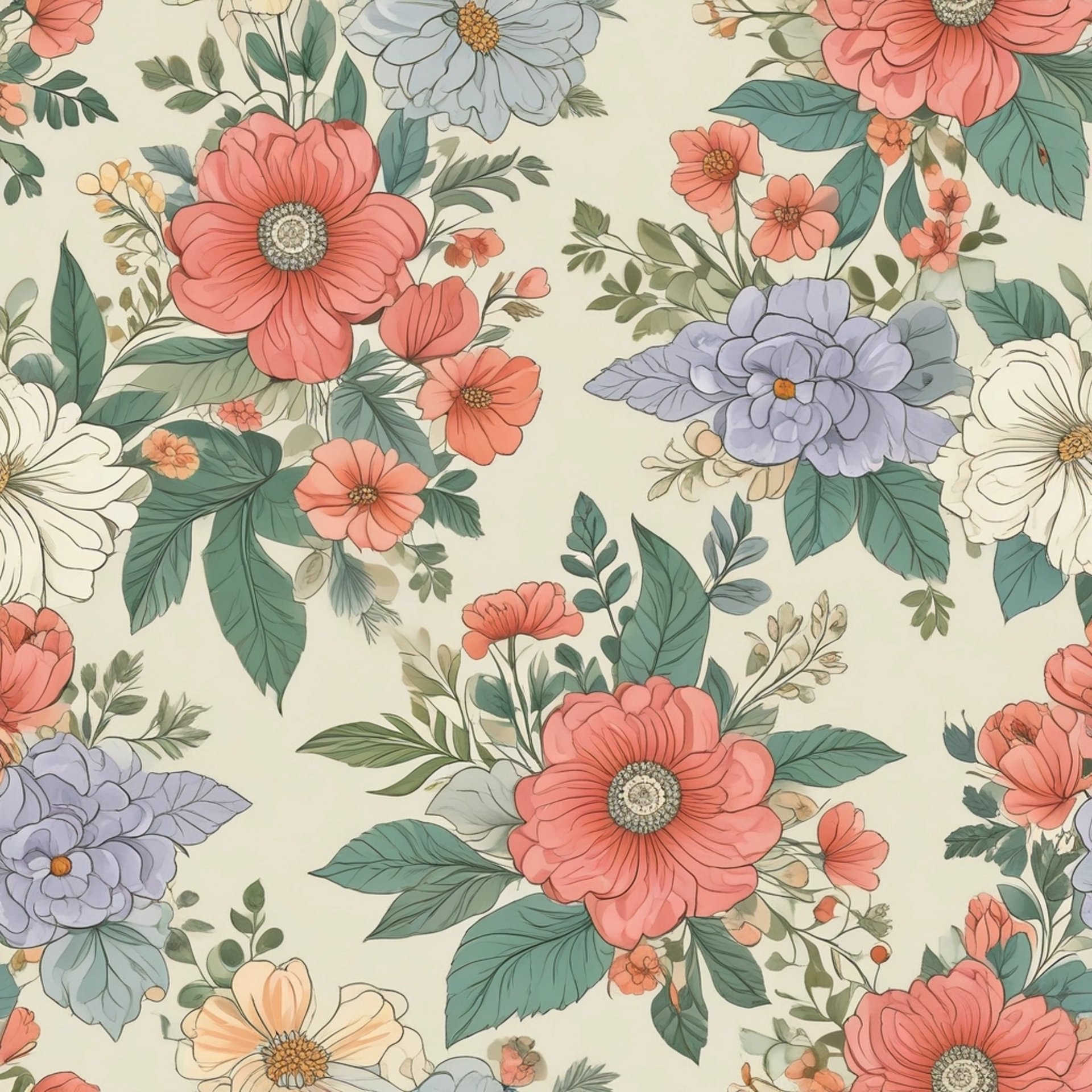
Mothers in Bloom: Nurturing Creativity While Raising the Next Generation
How a new wave of mothers are blossoming in both their creative callings and their parenting roles
Joonie Tan
Blending creativity, culture, and motherhood into a sweet and soulful legacy as Co-Founder of Lavonne Cake Studio and Kopitiam Lah
“Motherhood made me softer in the best way. It opened a new part of me. I noticed more, felt more — and that started to show in my designs and my decisions.”
In the vibrant, ever-evolving city of Bangalore, where innovation and tradition coexist in surprising harmony, one mother in her 40s is reshaping the way we think about food, family, and purpose. Joonie is the founder of Lavonne Cake Studio, known for its exquisitely crafted cakes that feel more like edible art, and the co-founder of Kopitiam Lah, a nostalgic nod to her Malaysian roots and a warm, casual café serving soulful street food from her homeland.
“I’ve always loved creating things from scratch — especially when they bring joy to others,” she reflects. “But when I saw how deeply people connect to food, especially cakes, I realised this wasn’t just about baking. It was about storytelling.”
Before motherhood, Joonie's creative career had structure and focus. But after her son, Zev, was born, everything changed — in the most unexpected and beautiful way. Motherhood shifted her lens. Joonie began to notice more, feel more, and lead with a new kind of softness that flowed into her work and her world. Designs became more emotionally nuanced, and business decisions were guided less by ambition and more by intention.
“Motherhood made me softer in the best way,” she says. “It made me want to build things that last — not just products, but experiences, relationships, a legacy.”
That desire to create something lasting extended to her culture. Kopitiam Lah was born from homesickness and a craving for familiar flavors — the bustling energy of traditional Malaysian coffee shops, the comforting chaos of street food, the scent of kaya toast and strong kopi. “It’s a taste of where I come from,” she says. “This place is a piece of my heart.”
Joonie's daily routine, while ever-changing, follows a rhythm rooted in purpose. Mornings begin early with family — preparing Zev for school, followed by a quiet coffee and a quick sync with her team. Her days are structured around meetings, design, kitchen supervision, and creative development — but always with flexibility built in.
“Some nights I work late, some mornings I take it slow. I try to be there for school pickup or bedtime whenever I can. It’s not perfect — but it’s mine.”
The biggest challenge Joonie admits, without hesitation, is the emotional tug-of-war that working mothers know all too well. There are days when she’s so immersed in a project that she forgets the time — and others when she’s present physically but her mind is chasing deadlines and ideas.
“There’s guilt either way,” she says. “Guilt when I’m away from Zev, and guilt when I’m with him but thinking about work. But I remind myself I’m showing him what it looks like to build something meaningful.”
Zev himself has become a constant source of inspiration. His curiosity, honesty, and joyful outlook have shaped her creative work in subtle but important ways. Joonie even developed a toddler-friendly cake line in response to his dietary needs and early taste-testing adventures. “He’s got a sharp little palate,” she laughs. “He tells me exactly what he thinks — no filter!”
Behind Joonie's success is a deeply rooted support system that makes this intricate balance possible. Her husband, who understands the pressures of the food industry, has been a pillar of strength, encouraging her to take risks while managing family life alongside her. Her in-laws provide consistent, hands-on help — including a cherished Friday night tradition when Zev sleeps over at their home, giving his parents a much-needed evening to themselves.
“Every Friday night is gold. It gives us time to reconnect as a couple or just breathe. That one ritual makes such a difference.”
Joonie is quick to credit her work teams as well — professionals who have become like family, helping her build and grow two beloved brands without compromising her values. She leads with compassion, but also with clarity, balancing creative freedom with operational excellence.
To mothers navigating similar journeys — torn between motherhood and a passion that refuses to be quiet — her advice is simple and heartfelt.
“You don’t have to choose. It won’t always be balanced, and some seasons will stretch you more than others, but your dreams are valid. Your creativity matters. Be kind to yourself — and build slowly, with intention.”
Following her passion has changed not just how she works, but how she sees herself as a woman. She no longer feels the need to divide herself into roles. Instead, she embraces the fullness of who she is — a mother, a maker, a leader, and a woman building something meaningful for the next generation.
“Zev sees a mom who’s resilient and creative, someone who shows up even when it’s hard. I hope that inspires him to do the same in his own way.”
In a world that often forces women to choose between success and motherhood, Joonie is proof that you can create a life that holds both — layered like the finest cake, full of richness, depth, and love.
To connect with Joonie follow her @joonietan
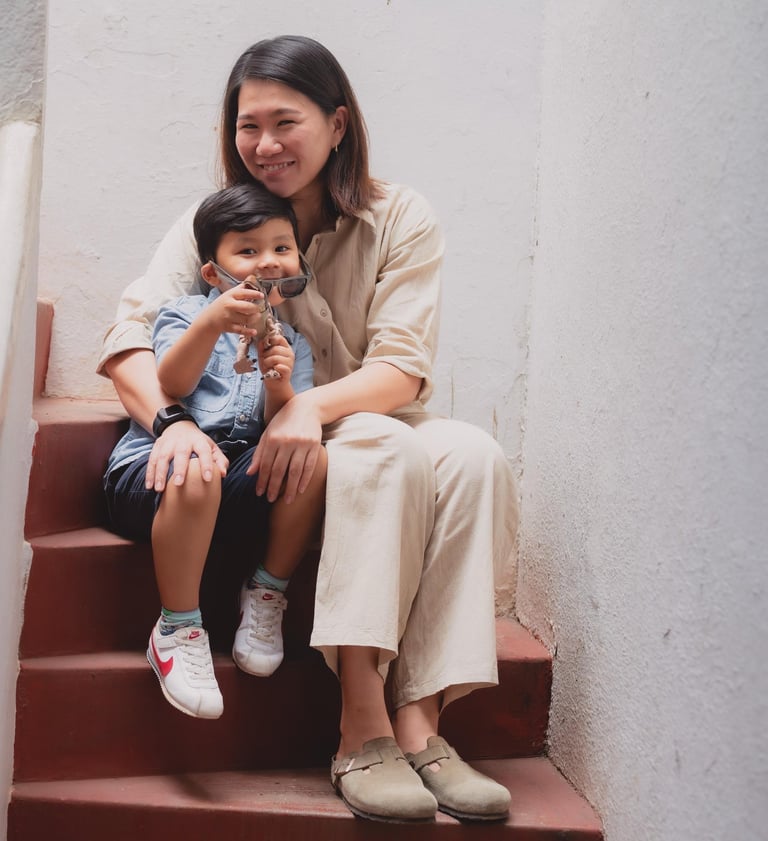

Sinjita Basu
A former editor turned visual storyteller found her creative purpose during lockdown - and she hasn't looked back since.
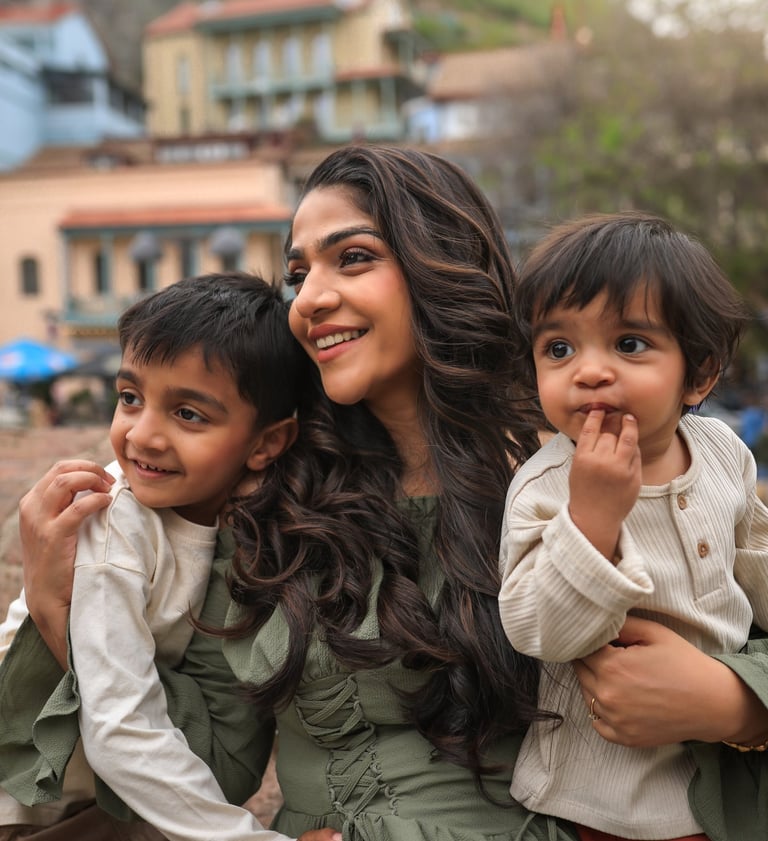

Before she ever picked up a camera professionally, Sinjita spent a decade immersed in the world of academic publishing. As an editor, her days were structured, cerebral, and word-bound. Photography, though deeply loved, was just a passionate hobby — a tool for travel, landscapes, and star-studded skies captured through long exposures and late-night shoots. “I had even mastered astrophotography,” she says with a smile. “But I had never used my camera inside my own home.”
That changed with the arrival of her first child — and a global pandemic.
“Covid hit India just as my son was born. I suddenly found myself homebound with this tiny, fascinating creature. I was captivated by him — his every expression, movement, and mood.” She began to photograph him daily, chasing light through her home, documenting his milestones, and building simple DIY sets to bring out the magic of early childhood.
What started as a way to connect and create soon took on a life of its own. Friends began to notice her talent and started asking for portraits of their own children. “That’s when I knew,” she says. “Photography wasn’t just a hobby anymore — it was my calling.”
“My son led me to my purpose — I just followed the light.”
Motherhood didn’t just inspire her creative spark — it ignited it. “Had my son not come into my life, I might never have pursued this path at all,” she reflects. Her children continue to be both her muses and motivators. When creative blocks hit, she returns to them. “They help me see things differently. Some of my best ideas — and best portraits — are inspired by real-life moments with them.”
Sinjita's daily rhythm is built with intention. Mornings are for photography sessions and editing galleries. With her older son at school and the younger one napping or playing with their caregiver, she’s carved out a work window that honours both her passion and her family.
Afternoons, though, belong fully to her children. “One of the reasons I love my job is that I can plan it around my children’s needs. The flexibility means I’m not constantly missing out.”
Of course, finding that balance is an ongoing challenge. Evening outdoor shoots, for instance, are tough. “I can only take them up if my husband comes home early or if a friend can help. There's always a tug-of-war between work and family. I often wonder if I’m giving enough to either side.”
“On some days, my kids need 100% of me. On others, my work does. I’ve learned to give myself grace in the in-between.”
There have been moments of deep doubt. After the birth of her second child — followed closely by a painful foot fracture — Sinjita considered quitting. “It felt like too much. I was overwhelmed.” But it was her husband’s unwavering support that kept her going. “He reminded me that regrets are made of things not done. He’s always been the wind beneath my wings.”
Like most mothers, Sinjita is no stranger to “mum guilt.” Her approach is rooted in mindfulness and gentle flexibility. “If I’m feeling guilty, I ask myself — can this be moved? Can someone else step in? Can I offer my kids more connection later instead of trying to do everything at once?” Her guiding philosophy: take one thing at a time.
Sinjita's children continue to be active collaborators in her creative process. Every year, she crafts a themed portrait for their birthdays — a time capsule of their passions at that age. “At two, my son was obsessed with carpentry, so I did a shoot with him and his tool kit. At three, he became a mini chef in his pretend kitchen. These portraits are love letters in light and lens.”
A supportive village — her husband and a tight-knit circle of women friends — has been instrumental. “These women step in, hold my babies, show up at my shoots, and lift me up. They are my unofficial crew — and I wouldn’t be where I am without them.”
“Our kids only need us this intensely for a short time. But our creative fire needs to stay lit — for them and for us.”
Sinjita doesn’t claim to have all the answers. She’s still figuring it out, one shoot, one school run, and one guilty moment at a time. But if there’s one belief she holds onto, it’s this: creativity matters. “If I didn’t have this outlet, there would be a void in me. Feeling creatively fulfilled helps me show up better for my children — and for myself.”
For mothers navigating the space between caregiving and creative dreams, Sinjita offers encouragement, not perfection: “You don’t need to do everything all at once. But do something. Keep the spark alive — even in small ways. Your kids are watching, and they’re learning from the way you honour your own dreams.”
To connect with Sinjita follow her @portraits_by_sinjita
“On some days, my kids need 100% of me. On others, my work does. I’ve learned to give myself grace in the in-between.”
Karina Shetty
Redefining life after motherhood as a lifestyle influencer, famous for her DIY projects and building a purpose-driven life after kids.
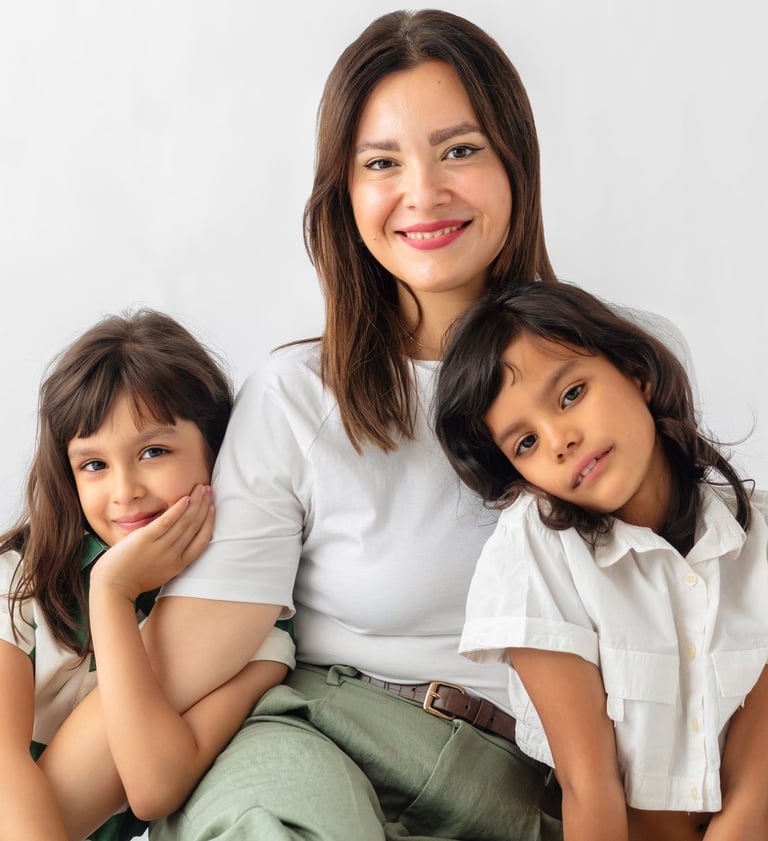

“Motherhood forced me to slow down — and in that stillness, I found my purpose.”
When Karina, a vibrant and driven mother in her 40s, stepped away from a successful two-decade-long career in advertising and marketing, she had no idea that her most transformative journey was just beginning. Like many women navigating a major life transition, she wasn’t expecting motherhood to lead her to her true calling — but that’s exactly what happened.
Her entry into parenting coincided with the global upheaval of the COVID-19 pandemic. Isolated from friends and support systems, surrounded by sensory bins, paints, and the constant noise of toddlers, Karina found herself on an unexpected path of healing, creativity, and self-discovery.
“Motherhood hit me like a moving train,” she says, smiling. “But somewhere in the overwhelm, I began creating — and healing. That changed everything.”
With two young children close in age and very little time to herself, Karina began exploring DIY projects at home — not out of ambition, but survival. What started as a way to entertain her daughters soon became a deeply fulfilling creative practice. She built cardboard boats, crafted sensory play experiences, and began documenting these everyday moments through photos and video. These activities, born out of necessity, slowly unlocked a long-dormant part of her identity.
“Our first project was a boat made from a big cardboard box,” she recalls. “Then it became a spaceship. That’s when I realised — creativity had always lived inside me. I just hadn’t made space for it before.”
The more she created, the more she was drawn toward child development, parenting psychology, and creative expression. As she shared her journey online, other mothers began to resonate with her raw honesty, her thoughtful content, and the balance she struck between parenting and personal growth.
Today, Karina is much more than a former marketing executive — she’s a parenting content creator, style curator, and self-development coach for women. Through her platform, she encourages mothers to reconnect with their inner spark and pursue creative, purpose-driven lives — even amid the messiness of motherhood.
“You don’t have to choose between being a present mother and a fulfilled woman,” she says. “You can be both — and you deserve to be both.”
Her daily life reflects this philosophy. She begins her mornings early, often before sunrise, setting the tone with journaling, breathwork, or creative planning. Her afternoons include what she lovingly calls “Kids Office Hours,” where she offers her children her full attention without distractions. Her work time is strategically carved around family rhythms — proof that creative flow is possible even in short, stolen pockets of time.
“I don’t chase balance anymore — I create flow,” she explains. “Whether I’m writing, coaching, or painting with my daughters, I try to be fully present in the moment I’m in.”
Like many working mothers, Karina knows that the idea of an uninterrupted workday is largely a myth. Instead of resisting this reality, she embraces it. Her work life is a “patchwork quilt,” she says — lovingly pieced together from short bursts of focus, flexible routines, and grace for the imperfect days.
“You learn to let go of perfection,” she says. “Motherhood teaches you that life doesn’t need to be neat to be meaningful.”
Karina also speaks candidly about the invisible pressures mothers face today — particularly the emotional toll of social media, unrealistic expectations, and the constant comparison trap. One of the ways she protects her own mental well-being is by creating daily, device-free one-on-one time with each child, even if it’s just for 20 minutes.
“Even if I miss a school pickup or can’t make bedtime, I know I’ve been present with them in a way that matters. That’s what they’ll remember — not perfection, but presence.”
A key ingredient in her ability to sustain both family life and creative work is her support system. Her husband is an equal partner in parenting and household responsibilities, and her extended family plays an active role too. Every Friday night, her children stay over at their grandparents’ house — a ritual Karina calls her “golden window” to rest, reset, and reconnect with herself.
These moments of solitude have become crucial to her creative and emotional well-being. They allow her space not only to dream and plan, but to remember who she is outside of motherhood — a powerful, curious woman with her own identity and ambitions.
Her message to fellow mothers is bold and empowering:
“Your dreams matter. You’re allowed to want more. When you nourish your own creativity, your joy grows — and that joy becomes your children’s foundation too.”
Karina is now in the process of building a multi-faceted personal brand — one that merges soulful parenting wisdom, personal style, and women’s self-development. Her content is equal parts aesthetic and emotional, combining thoughtful parenting tools with real-life stories that make women feel seen, supported, and inspired.
As her digital community continues to grow, Karina is proof that motherhood doesn’t end your dreams — it can amplify them. And for many women, it’s not a pause but a powerful pivot.
To connect with Karina follow her @mangohousekids

The Last Retreat in Kashmir
Adwitiya Borah - Founder of Kihon Fitness Discusses Pivoting from her Corporate Job to Personal Training and Trekking with her Tribe in Kashmir
"Since I was a child, Kashmir has always been associated with violence. While that is one truth, since my last retreat, I think of Kashmir for the sweet scent of pine forests, for the crisp mountain air, and for the warmth and kindness of its people."
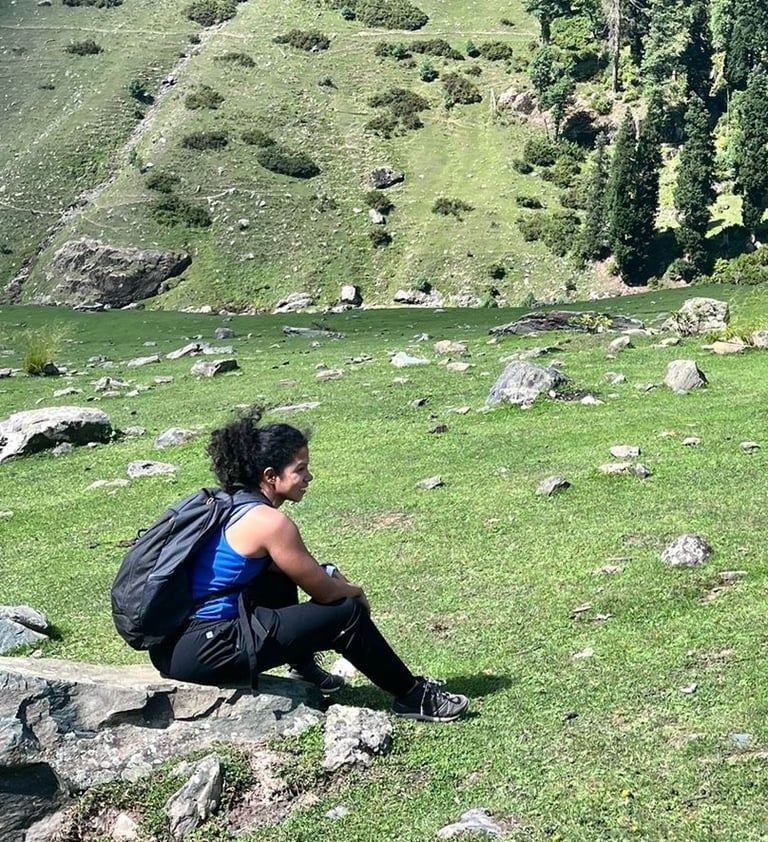

Q: What made you pivot from your corporate job to entering the space of Personal Fitness Training?
Adiwitiya: I have been into fitness since I was a teenager. For me, it's a way of life. So when I stepped into the corporate world and saw just how unfit everybody was, I immediately knew that it wasn't going to be a permanent thing for me. Hours and hours of sitting, late night calls, stress, unhealthy eating timings, and the sheer lack of interest in fitness took me by surprise.
But like most people, I got sucked into the day-to-day of it, and stayed in that world. I still stayed fit, lifted heavy, kept practising karate, represented my country in two international championships- all of this while juggling deadlines and spreadsheets.
Over time, as I started to get older and the workload started to get heavier, I felt that the time to quit was now or never. I was not ready to leave the safety net, but I realised that I would never be fully ready. I quit my job on 21st January 2019, one day before my 29th birthday. I quit without any short term or long term plan, barely any savings, and no cushion to fall back on if things went south.
It was truly a "jump off a cliff and hope to fly" story!
Q: What were you doing before PT?
Adwitiya: I am actually a Computer Science and Engineering graduate from NIT Silchar. I came to Bangalore in 2014 to look for a job, and then worked as a Business Analyst for four years. Many people think that I quit my corporate job and instantly became a successful fitness coach, but the truth is that I was completely lost for a year or two there.
First, I tried to become an online writer- writing blogs, social media and website content as a freelancer. While that was tough, COVID made everything way harder. At one point, I couldn't afford rent anymore, and was already considering taking a bus to go to Assam where my family was (there were no flights to trains at that time, and a bus journey was 2-3 days long). Early COVID were some of my hardest months- alone, and not knowing when the next paycheck, meal, or a simple human connection, was coming my way.
That's when a friend asked me to train her. I started with that, and slowly, one client at a time, built what I have today.
Q: What sparked your own journey into fitness? What is your personal story?
Adwitiya: I was not into sports so much as a child. Frankly, I did not know that women could be strong, or that women could fight. I did not have a role model for that. When I stepped into my first karate class at the age of thirteen, I was taken aback. I could kick! My thin scrawny legs could actually kick! And I could throw punches too! The fact that my body could actually do that was new information for me, and it was my first taste of what being strong felt like. The karate classes gave me a lot of confidence, and I ended up doing better in a lot of aspects of life, including my studies, extra curricular activities at school, and even public speaking.
At a very young age, I realised that strength can do wonders to your mind and body.
Now, when young girls tell me that I'm their role model, it's a full circle moment for me.
Q: When you look back from the start of your entrepreneurial journey to where you are currently now - what comes to your mind? What is significant to you?
Adwitiya: I am proud of myself, really. No matter how hard life was, or what I needed to survive, I have put in sincere and honest effort into everything. I knew I would sell my programs better if I used ads like "lose 5kg in 5 days" but that stuff is toxic because it reduces fitness to a number on the scale. I didn't indulge in that. I always stuck to scientific, well-researched truths, and for that, I love and respect myself.
Q: What are 3 tips you would give to someone about changing careers?
Adwitiya:
1. Put in the work. It's hard, and it's frustrating. You will see people who have made it, and you will ask, "Why can't I be there?" but they have been where you are now, years ago. So put in the work. Deep, focussed work. Read books, watch educational videos, sign up for courses. Don't be in a hurry to "make it". First, work.
2. It's okay if you don't have it all figured out. It's okay if you need to change your mind, and change the course of your career for a second time. Or even a third time. You are many different people trying to fit everything into this one little life, it is okay to take your time to figure it out.
3. Understand that at the end of the day, it's still a job. You can love your job, and still feel frustrated with it. I love what I do, but sometimes, I just want to lay down. Sometimes I don't want to see anybody. Sometimes, I have no energy left to solve someone else's problems because I have too many of my own. But that's the job. You put on a smile, dig deep for some energy, and you show up anyway. Discipline is key.
Q: Tell me 3 training myths that you used to think were true but now you know are not true?
Adwitiya: I have been into fitness for so long that the myths I believed in are from a long time ago. But fitness, as an industry, is evolving, and you never know what will change next. I try to follow research and logic as far as possible, and not give in to what sells to the public.
Here are 3 myths that I believed in:
1. Way back in college, I thought that doing a lot of sit ups would give me a flat belly, and even 6-pack abs. I did 50-100 sit ups daily. Didn't get a 6-pack, but might've messed up my posture!
2. Not long ago, I did IF (intermittent fasting) because the research proved how good it was. Then new research came in and it turns out, IF isn't good for women, especially female athletes!
3. I also believed that athletes need to eat meat in order to maintain and grow their muscles. Today, I've been completely vegan for 6 years. As I'm getting older, I'm getting stronger, I can lift heavier, can run faster, run longer, and move better. All this, without hurting an animal. Being vegan has also helped calm down my nervous system, and just be more clear in my mind.
But there are so many myths that people still believe in. The saddest one is women thinking that if they lift heavy weights, they'll get big and bulky. The other, more dangerous, one is women thinking that they have to do hours and hours of cardio to lose fat, without doing any strength training. That's an easy way to get injured.
Q: How did your idea for your retreats come about?
Adwitiya: It started with the idea that I wanted to get paid to travel!
In my line of work, there are zero paid leaves. No sick days, no holidays, no vacation days. If I don't show up for work, or if my client doesn't show up for a session, I don't earn. That's tough, especially during holidays. Fitness retreats seemed like a beautiful idea where I could travel with a group of people and discover a new place, while keeping fitness at a core of the trip. My first Fitness Retreat was at Art Resort in Palolem, Goa. My second Fitness Retreat was a trekking trip in Kashmir last year.
Q: Tell me about the last retreat - how did that go?
Adwitiya: My last retreat was in Kashmir- and it was beautiful. We were a group of 15 people from 5 different countries, and we spent 8 days in Kashmir.
The crowd favourite was the Lidderwat Trek in Pahalgam. Imagine walking through a pine forest on a mountain, and all you can hear are birds, and a river far down below. I felt so close to nature, I actually stopped a few times to hug the trees. It's an out-of-this-world feeling if you can be present for it.
The toughest trek we did was the Apharwat trek. It took us about 11 hours to finish, and half the group turned back without reaching the top. Towards the top, the air got thinner and breathing got extremely hard. That one really challenged our mental and physical endurance. One of the participants had a muscle injury during the trek and became unable to walk or place any pressure on her leg. Luckily I was close by, and I was able to stretch her muscles the right way, so that she could at least walk back to the hotel with one of the guides. In tough treks like these, I think it is useful to have a person with you who understands the human body and knows what to do.
Since I was a child, Kashmir has always been associated with violence. While that is one truth of this place, since that trip, I also remember Kashmir for the sweet scent of pine forests, for the crisp mountain air, and for the warmth and kindness of its people.
Q: When and Where is your next retreat?
Adwitiya: I was preparing for a second fitness retreat to Kashmir this year, since last year was so beautiful. But after the recent terrorist attack, we will not be able to organise this. The attack happened in Pahalgam, which was our first destination last year. It is a simple and small town, with warm smiles and big hearts. I have this distinct memory of watching young children playing in the freezing waters of a stream that flowed through the town, completely carefree and absolutely delighted.
This attack undoubtedly feels very close to heart, for me and for everyone who was with me on that trip last year. I had a talk with my colleague in Kashmir who was taking care of all the groundwork, and we have decided to call off the trip for this year. They are all very shaken, and grieving.
I do not have a concrete plan for another retreat at the moment, but I may plan something closer to Bangalore towards the end of this year. Maybe Coorg, or Ooty.
Q: If you could go back and change one thing that you did when you were building your business in the first year, what would that be?
Adwitiya: I would ask for help. Looking back, I think I didn't have to do everything and figure everything out on my own. If a new fitness trainer calls me up today and asks, "What would you do if a client has this problem?" I would love to brainstorm together and help out. And I'm sure someone would've helped me out too, if only I had asked.
Another thing I would add to my life at that time would be meditation. Although I have been meditating every day for more than two years now, it was more or less sporadic at that time. Meditation has really helped me see things in a different way. It has helped me connect with myself, with people, with the planet, and with the universe. It has helped me feel grateful for what I have, look forward to the future like it's an adventure, and find peace and joy in everyday life. This mindset would have helped me a lot in my initial days which were filled with stress and anxiety.
Q: Where do you see yourself in 5 years?
Adwitiya: I am currently doing my Health Coach certification, which I will finish by the end of this year. A Health Coach is different from a Personal Trainer in the sense that a Health Coach's job will be to help you elevate multiple aspects of your life, like having better nutrition, managing stress, improving your sleep etc. I understand that it is difficult to see results in the gym if the rest of your life is not held together, so I hope to be able to help my clients better with this certification.
I also want to be able to train athletes! This will need extensive and in-depth knowledge, and I have already started studying for that. I loved the adrenaline rush of competing and winning in karate tournaments before. I hope I can revisit that joy as a coach for younger athletes in the future.
Lastly, and this is more personal, I hope to be able to let more people into my life. I'm an introvert, and I struggle to believe that people want to be my friend. I hope I can do the healing work needed here, and let my guard down every once in a while.
To connect with Adwitiya and keep up to date with her work and retreats Follow : @adwitiya.borah
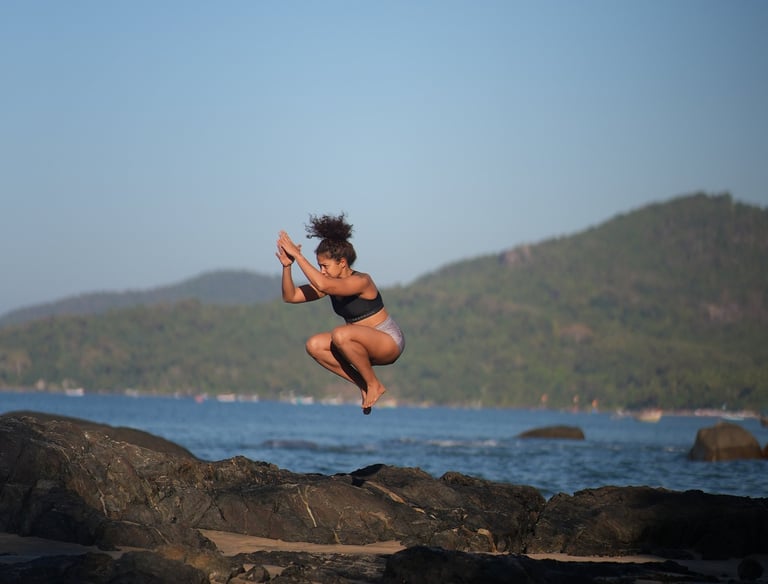

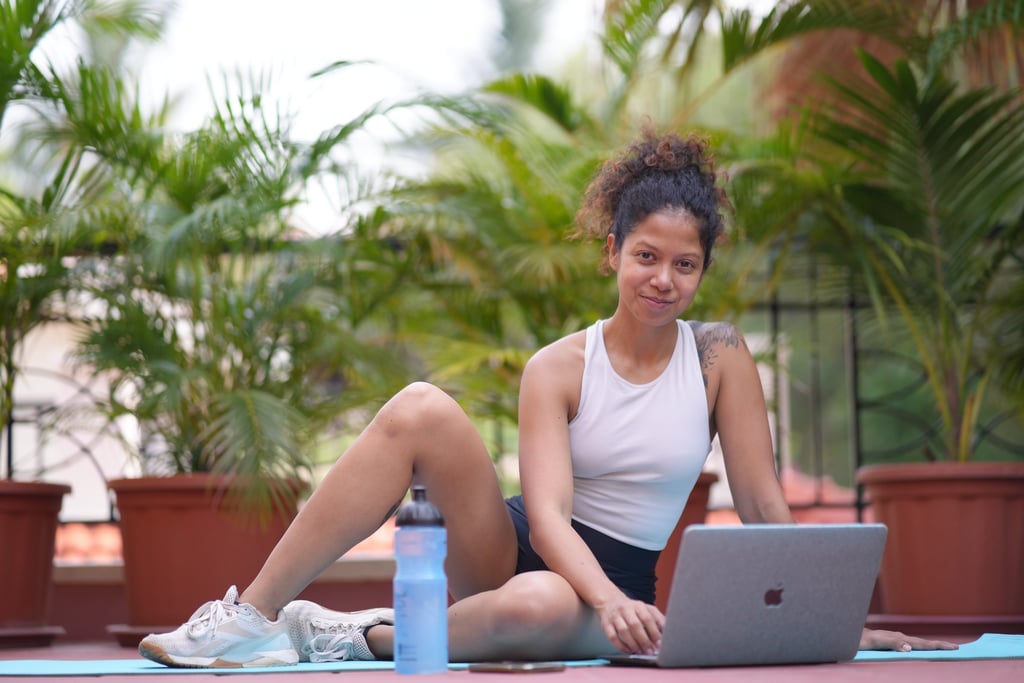



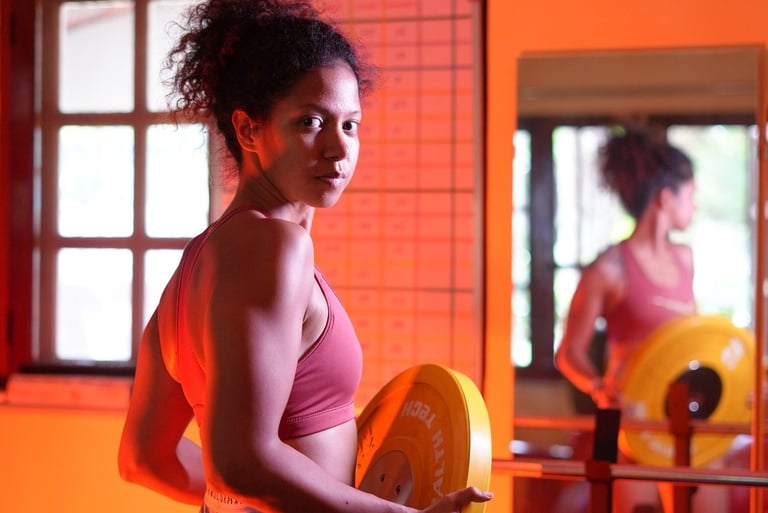

A Swedish House DJ Brings his Sound to Bangalore
Özgür Can, An Expat from Stockholm, tells The Wander List about his Love for Music and his Upcoming Gig in South India.
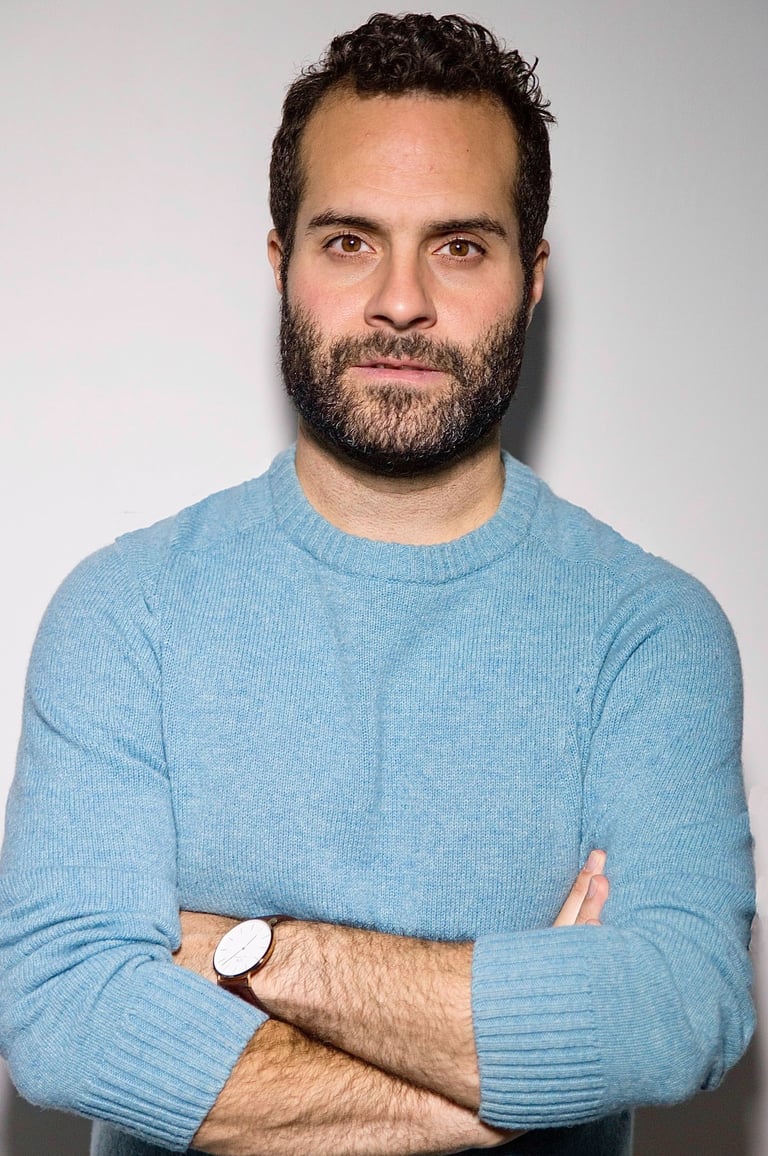

Q: What brought you to Bangalore?
Özgür: My wife works at H&M so that brought us to Bangalore. This is our second expat run, we lived in Shanghai 10 years ago before we had kids and always talked about moving out again sometime and when the opportunity came we pretty much jumped on it.
Q: How did you get into the Music scene?
Özgür: I was always interested in music from a very young age. I remember sitting on our living room floor by the stereo system and listening to records and music of all kinds.
I realise now as an adult how great and diverse music taste my parents had! But it was when I was around 13 years old a few older kids from my neighbourhood started going to raves and buying CDs that they played for me and when I heard those weird sounds of Techno and House music I was instantly hooked and kind of knew that this is was going to be my future!
Q: How did you get into DJing? Tell us about your first gig.
Özgür: It kind of went hand in hand with when I started producing at the age of 14. My first real gig was in a club in Stockholm - I was so nervous that I actually prepared the entire set list in advance since it was a pretty big name Nightclub! That's also the probably the only time I've prepared for a set from beginning to end! Previously I had played in smaller bars but playing in that particular venue was a big deal for me, it was my first 'proper gig', so naturally I was excited and nervous.
Q: Why House music?
Özgür: It was just something with the hypnotic sounds and grooves that grabbed me! It was so different from any other music that was on the radio and TV at the time. Then I started going to raves myself when I was around 16 and from that point electronic music has been a huge part of my life.
Q: Who in the music scene inspires you?
Özgür: That's probably one of the most difficult questions to answer haha! I get inspired by so many different things. Early on in my career it was artists and DJs like: Adam Beyer, Joel Mull and James Holden from the dance music world but I was also super inspired by Timbaland, the way he was producing these massive hits that were so quirky and so ahead of his time! I tend to find inspiration in musicians that think a bit outside the box and aren't afraid to break the rules! These days i listen to a lot of dance music from South Africa. The way they produce a lot of their house music is super inspiring.
Q: Are you familiar with any music artists in India?
Özgür: I have connected with a few fellow House music artists and DJs from Bangalore that I am excited to work with, such as Praveen Achary, Haen, Aman Anand.
Q: Is there any sound in Indian music that sparks your attention?
Özgür: Since i'm a dance music enthusiast I'm always interested and drawn to drums, percussions and grooves - which you hear a lot of in India.
Q: What are your plans while you are here in India?
Özgür: My life is not really that different from back home to be honest. The mornings are the pretty much the same. I usually make breakfast for the kids and get them ready for school and after that my day usually starts with a coffee and starting up the studio - which is currently in our bedroom and I start my work day. My plan is to explore the city a bit more and just enjoy the lovely climate and amazing food!
Q: Where have you visited in India so far?
Özgür: We went to Mysore a a few months ago and that was amazing! It was great to learn more about the region's history and culture. We have a trip planned down to Kerala soon which we are excited about, but there is soooo much in India to see and explore! I'm looking forward to exploring more of this beautifully diverse country.
Q: Where would you like to visit that you haven’t done yet?
Özgür: I really want to go up north to the Himalayas and explore that region but also to the most northern east parts of India - the scenery looks amazing so those regions have always been on my wish list of places to visit.
Q: What have you learnt about being an expat in Bangalore so far?
Özgür: To just embrace the cultural clash and enjoy the privilege of living an expat life - experiencing a different country and seeing new things.
Q: Tell me about your upcoming gig - how did you arrange this?
Özgür: The beauty of the internet! Before we moved here I reached out to a few DJs and producers from Bangalore.
Praveen Achary was one of the DJs I reached out to as I was familiar with his name and music. Luckily he knew who I was so we started talking and he was excited that I was moving to Bangalore. He invited me to his gig at DGLT festival when we were just one month in and I went to his gig and we hung out. We've been in touch ever since and have been talking about doing something together. So I'm glad we have managed to bring something to fruition and I'm excited about it.
Q: What can we expect from your upcoming gig?
Özgür: Groovy and fresh house music! I like to have fun and really be a part of the party when i play and that usually reflects on to the crowd. We go out to have a good time and dance right?
Q: What excites you most about your upcoming gig?
Özgür: This might be my longest break from DJ'ing in 20 years so I'm very excited to start playing again! I have found so much new music that I'm very excited to share and play!
To connect with Özgür with keep up to date with his DJ gigs please follow him on Instagram: @ozze.can
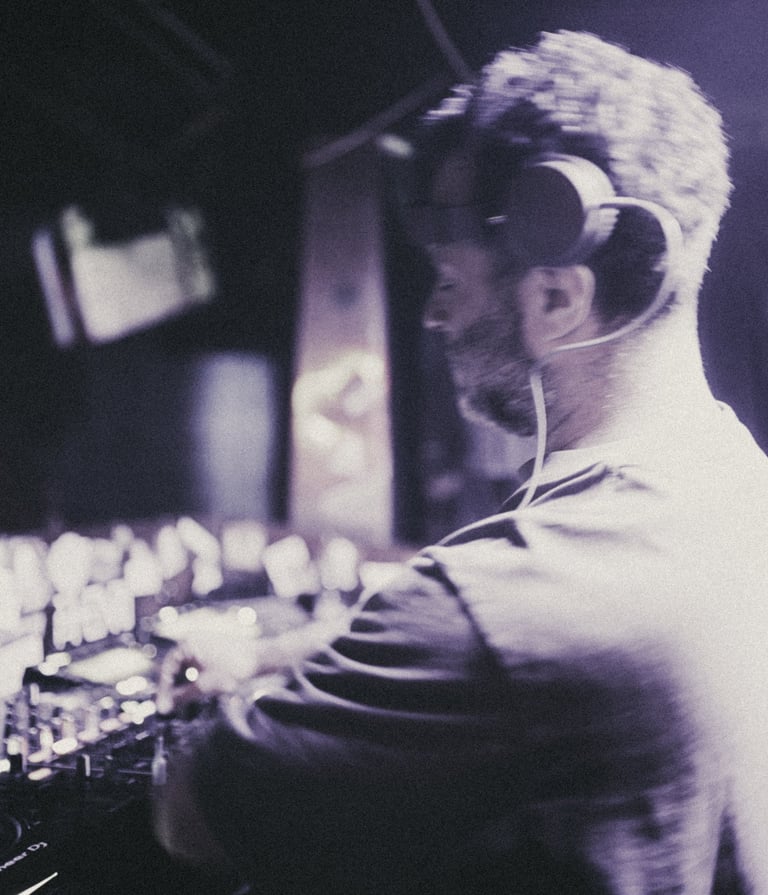

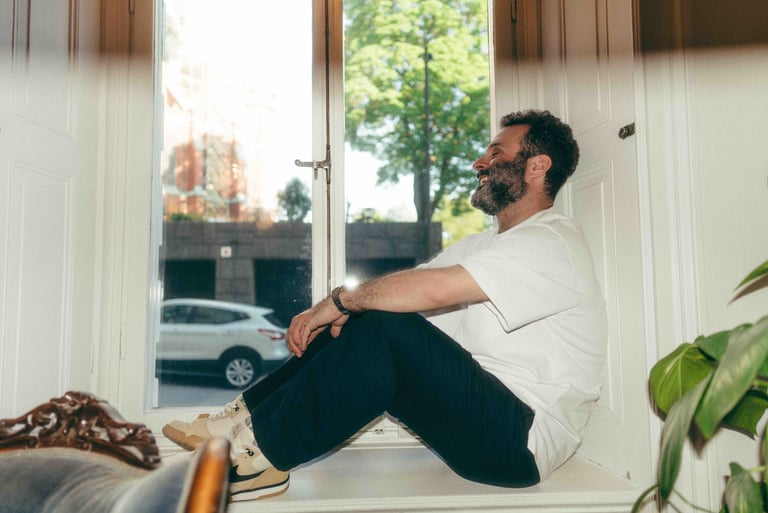

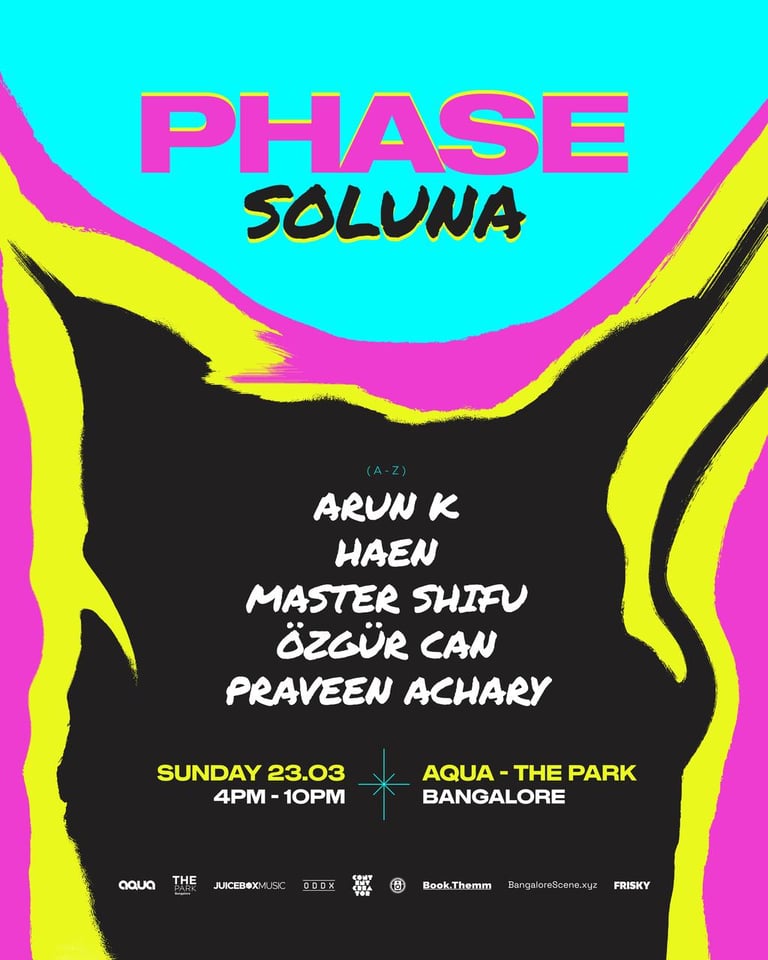



Adam Gray, a Michelin Star Chef brings 'unexpected' British cuisine to Bengaluru
The London based father of four and fitness enthusiast discusses his dedication and hard work in achieving culinary excellence at some of the finest dining spots in England.
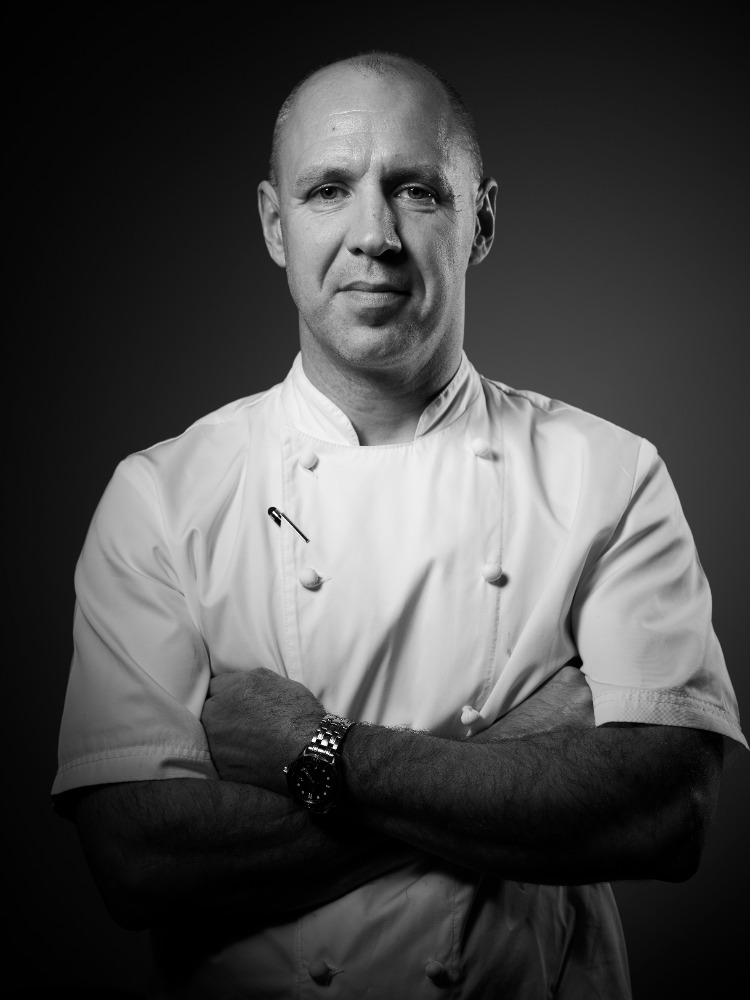

Q: What sparked your interest in becoming a Chef?
Adam: I was fourteen years old, washing pots to earn extra money in a local hotel and then I started to help prepare food, which got me interested in food preparation.
Q: You have worked with some very big names in the industry, what have you learned from that?
Adam: I have worked with some true culinary legends, Bruno Loubet, Raymond Blanc, Gary Rhodes, Phil Howard to name a few. What they have all instilled in me is hard work, consistency, never accept second best and be humble and respectful of your ingredients and the people you work with.
Q: What's been the most challenging project you've ever had?
Adam: Opening the new restaurant Rhodes 24 in 2003 for Gary Rhodes OBE, for which I received a Michelin Star within 1 year.
Q: What's been the highlight of your career so far?
Adam: There have been many, but being awarded a Michelin Star and then maintaining the Michelin Star for over ten years, was a huge highlight in my career.
Q: Your work led you to travel around the globe quite a lot - has this inspired your work and what you create in the kitchen?
Adam: Yes, to some extent, to use many different ingredients that you normally would not see or use is fantastic, but to be honest it's the different inspirational people you meet from all walks of life that are truly inspiring.
Q: You are passionate about keeping fit and having a healthy diet - why is that important to you?
Adam: I have always kept fit since childhood. For me it's hugely important to stay fit and healthy, I open water swim, road cycle, coach rugby and I have done martial arts for many years. I believe staying fit keeps your mental health focused and positive. Working as a Chef in the hospitality industry is exceptionally hard work and stressful so maintaining my fitness gives me the balance I need to succeed. With keeping fit, you also need to maintain a balanced healthy diet, the two go hand in hand.
Q: Part of your work is to inspire young people to enter the hospitality industry and you also spread the importance of nutrition and good health - where does this passion come from?
Adam: I believe we have a duty to inspire the next generation of young people. It's great to achieve accolades, but it's also about inspiring young individuals and showing them that with perseverance and hard work, anything is possible within the hospitality industry. Also, with better nutrition and a balanced diet they will be able to perform better in life.
Q: Where have you travelled in India and what do you love about it?
Adam: In 2024, we visited our friends Steve and Vicky Batten in Bengaluru and we spent some time in Kerala too. We truly loved our time in India, with such welcoming people, vibrant cities and awesome cuisine - it's great to be able to return again this year to experience even more.
Q: What do you hope to see and experience on your visit to India?
Adam: I will be working at my Pop Up restaurants in Bengaluru at The Leela Palace and Leela Bhartiya City. I am really looking forward to working alongside the local staff and getting to know them.
Q: What would you tell your younger self that you didn't know at the time?
Adam: Be more patient, enjoy the journey of learning and gaining knowledge.
Q: What upcoming projects are on your agenda?
Adam: I am cooking three special dinners in Bengaluru in March showcasing my modern British cuisine.
The Leela Bhartiya City Hotel : 19th March
The Leela Palace Hotel : 21st and 22nd March
Q: Where do you see yourself in the next five years?
Adam: I suppose it's quite simple really, to keep fit and healthy, enjoy my family as much as possible and continue to cook high quality, well balanced and nutritious food.
For reservations, call +91 8951974424
To connect with Adam please follow him on:
Instagram @adamgraychef
LinkedIn www.linkedin.com/in/adamgraychef
www.chefadamgray.co.uk
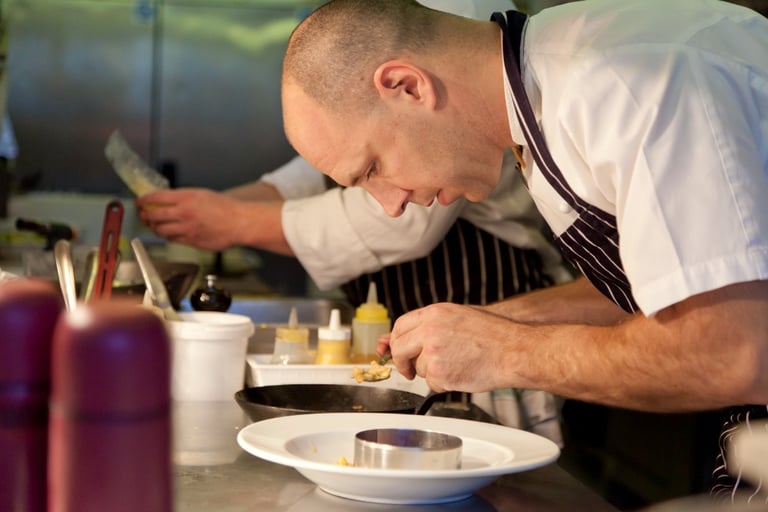

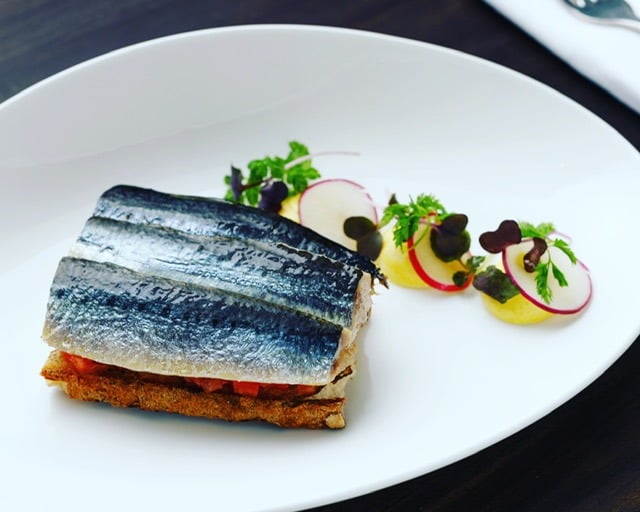


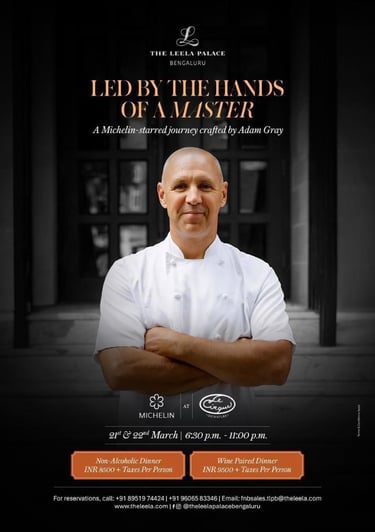


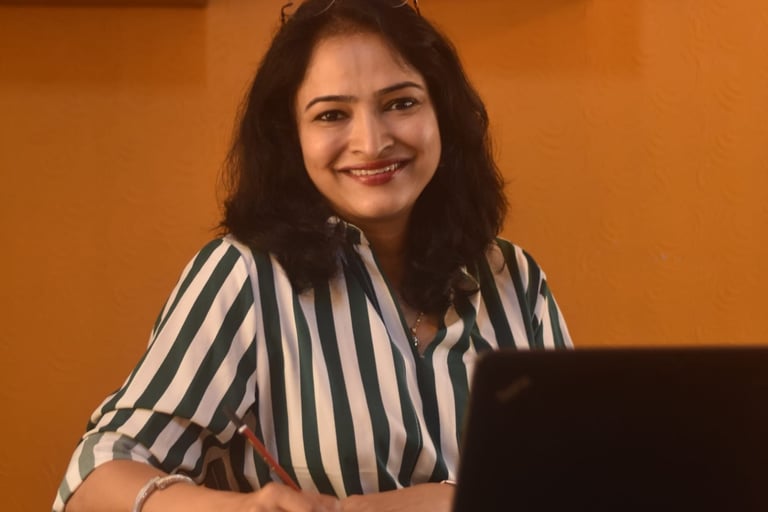

Preeti Pranav Jain, Bangalore based Life Coach, NLP Practitioner & Laughter Therapy Expert talks to The Wander List
Born in the Eastern Indian state of Bihar, Preeti Pranav Jain has been in the Life Coaching profession for almost thirteen years. Here she talks to The Wander List about what spurs her on and how her passion for Life Coaching and achieving 'inner peace' go hand in hand.
Q: What sparked your interest in becoming a Life Coach?
A: My own life events sparked my interest in this field, I have gone through numerous challenges in life and by the grace of God, always found the right support. So Life Coaching is my 'pay it forward' mission.
Q: In what ways has your profession impacted your life?
A: I became closer to myself, with complete acceptance, gratitude and non judgement towards every situation and person around me.
Q: Why do you think Life Coaching is important?
A: You can't see the spots on your face without the help of a mirror, a Life Coach is a mirror, a guiding light and torch to show you a path. I like to think of it as 'a lighthouse in the darkness of the sea'.
Q: How do you manage a work life balance?
A: Work and life are not two things to be balanced, they are only 'parts' of me. When you are so passionate about everything in your life, you don't have to find balance.
Q: What does success look like to you?
A: My inner peace in any situation is my success.
Q: What is the most important aspect of your work?
A: I set out to bring that spark of optimism in someone's eyes and a smile of positivity on their face - that's the most important aspect for me.
Q: Where in India is your favourite place that you would consider your sanctuary?
A: Bangalore is home for me and my home is my sanctuary.
Q: What advice do you give to others who are considering becoming a Life Coach?
A: Work on finding the true purpose of life. First go through the Coaching journey yourself by working with a Life Coach and you will find your core.
Q: What is your advice for living a 'successful' life?
A: Stop seeking outside for balance, success, love and peace. It's all within you. Learn to go inwards.
connect with Preeti Pranav Jain on Instagram @preeti_pranav_jain
